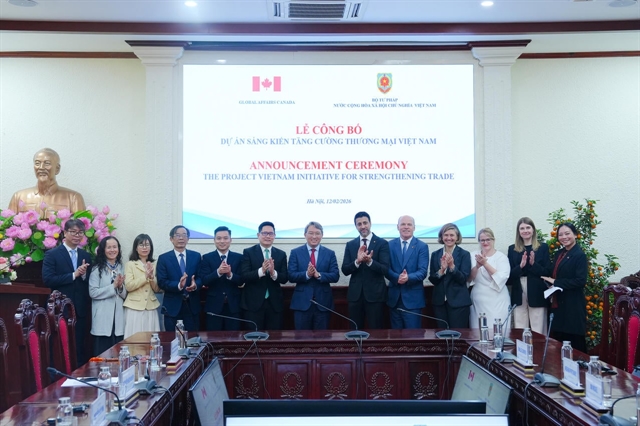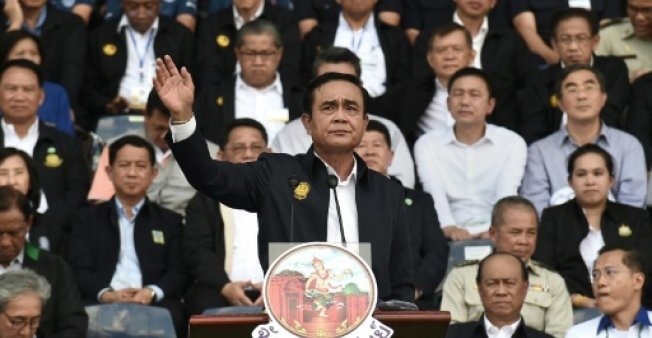 World
World

Scores of Thai police ringed a Bangkok university early Tuesday as protesters prepared to march to Government House to mark four years of junta rule, one of the largest acts of dissent since the military grabbed power.
 |
| Thai Prime Minister Prayut Chan-O-Cha has suggested elections will be held in February next year – but the timetable for a return to democracy has frequently slipped. — AFP/VNA Photo |
BANGKOK — Scores of Thai police ringed a Bangkok university early Tuesday as protesters prepared to march to Government House to mark four years of junta rule, one of the largest acts of dissent since the military grabbed power.
Disquiet with the junta is simmering in Thailand, despite a ban on political gatherings since a coup toppled the elected government of Yingluck Shinawatra on May 22, 2014.
Prime Minister Prayut Chan-O-Cha, who as army chief booted Yingluck’s administration from power, has suggested elections will be held in February next year.
But the timetable for a return to democracy has frequently slipped and patience with his junta is wearing thin among many sections of Thai society, including some of his former supporters.
Around 200 protesters camped out overnight at Thammasat University, some keeping cool with fans decorated by cartoons of Prayut with a "Pinocchio" nose – a reference to the repeated broken promises on restoring democracy.
"We want elections. Nothing is being done to gaurantee they happen in February," Anuthee Dejthevaporn, 30, said a few hours ahead of the planned march.
"If they decide to use force against us, there is nothing we can do," he said, referring to Bangkok’s history of violent crackdowns on street politics.
The protesters, who appeared relaxed despite the police presence, were an apparent mix of student activists and former "Red Shirts", one-time supporters of the Shinawatra clan.
Governments led by family members or their allies have dominated Thai general elections since 2001.
But they have been hit by two coups in that time and endless legal cases which have seen Yingluck and her older brother Thaksin flee abroad to avoid jail.
Prayut, who draws backing from an arch-royalist Bangkok elite, says he was forced to seize power to heal the kingdom’s caustic political divides and reboot an economy stalled by months of protests against Yingluck’s government.
He has banned political gatherings of five or more people and silenced criticism with legal charges and tight monitoring of prominent activists.
In between a junta-appointed national assembly has signed off on a new constitution that ties future elected governments to a 20-year plan for the country.
The charter also creates an appointed upper house and other checks to the power of future civilian governments, in what analysts say is a brazen assault on the political base of the Shinawatras.
The family have relied on the loyalty of the rural north and northeast to power them to government – although after years put through the wringer by the army it is unclear exactly how much support the family still draws. — AFP




